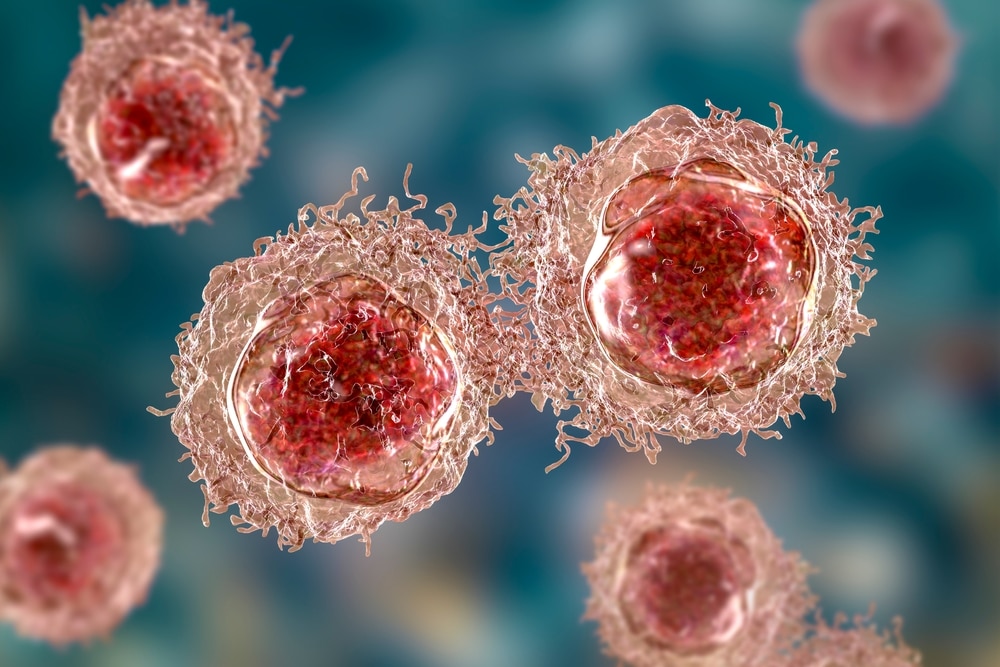Newsletter Signup - Under Article / In Page
"*" indicates required fields
The malignant brain tumor type medulloblastoma can become resistant to therapy, which can cause relapse.
Researchers at Uppsala University in Sweden have discovered a protein that makes tumor cells insensitive to radiation treatment. The scientists hope the results could lead to better treatments for children with the highest risk to develop relapses.
Avoiding treatment
Medulloblastoma is the most common form of malignant brain tumor in children, which often can be cured with operation, radiation and chemotherapy. But a distinct type of medulloblastoma has an increased risk of becoming resistant to the treatment. This will cause recurrence that is strongly connected to increased mortality.
That certain cancer cells can avoid treatment suggests there are biologic factors inside cancer cells that can enhance their resistance toward, for example, radiation. In the present study, the research team showed certain cells within the tumor bulk did not divide as often as other cancer cells did, which made them less sensitive to irradiation. They also found an accumulation of a protein, SOX9, in recurrent samples from patients that had been operated before and after they developed a relapse. They then suspected that SOX9 was involved in the recurrence process.
Cancer cells reprogrammed
“We found that a stem cell protein called SOX9 was present with high activity in rare cells in the tumors and that cells with high activity of SOX9 were resting. SOX9 protected the resting cancer cells against radiation by temporarily inhibiting another protein that otherwise promotes cell division. In experiments where we knocked out SOX9 with the CRISPR/Cas9 genetic scissors, tumor cells lost their capability to relapse, which suggests that SOX9 is important for this process,” said Fredrik Swartling at Uppsala University, who led the study.
In animal models that resembled relapse in patients, SOX9 gave rise to increased migration and metastases of cancer cells in areas within the spinal cord. The cancer cells also became reprogrammed to avoid recognition by the immune system. These are contributing factors that might facilitate relapse.
The researchers further examined how substances that inhibited SOX9 influenced the development of relapses in animal models. Using bioinformatic analyses they discovered a few drugs that are used for other treatments that unexpectedly had a suppressing effect on SOX9 in relapses.
More specific treatments against SOX9 cancer cells
“We hope that our discovery could lead to more specific treatments against those SOX9 positive, slow dividing cancer cells. Eventually, it might improve the possibilities to treat children with medulloblastoma who have the highest risk of developing relapses,” said Anna Borgenvik, a postdoc in the research group who performed the treatment studies based on the bioinformatic analyses developed by Holger Weishaupt, a researcher in the team.
The study was done in collaboration with the Preclinical Cancer Treatment Center, a SciLifeLab and Uppsala University sponsored pilot facility.
Financial support was received from the Swedish Childhood Cancer Foundation, the Swedish Cancer Society, the Swedish Research Council, the Swedish Society of Medicine, the Swedish Brain Foundation, the European Research Council – Horizon 2020, Ragnar Söderberg´s Foundation and the Worldwide Cancer Research.
Oncology R&D trends and breakthrough innovations







